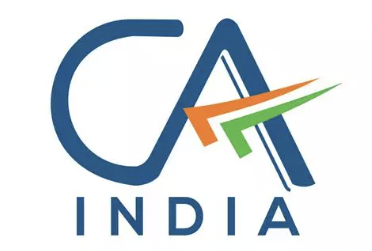Our Services
ROC-Compliance

ROC-Compliance
Ministry of Corporate Affairs (MCA) is continuously working towards achieving the e-Governance Model in Corporate & Secretarial Compliances. MCA has taken pathbreaking steps in the direction of Digitalisation of Corporate & Secretarial Compliances. One of the Initiative by Government is as discussed below.
Ease in Company Incorporation Process: SPICe and SPICe+
The Ministry of Corporate Affairs has introduced a new Web-Form, ‘SPICe+’ (pronounced ‘SPICePlus’) and AGILE – PRO replacing the existing SPICe form. SPICe+ would offer 10 different services by three Central Government Ministries & Departments (Ministry of Corporate Affairs, Ministry of Labour& Department of Revenue in the Ministry of Finance), One State Government (Maharashtra) and Banks.
- Name Reservation
- In corporation
- Pan
- Tan
- Din
- GST Number
The Ministry of Corporate Affairs has launched a new online monitoring system to streamline the corporates’ compliances, increase transparency and penalise the defaulters to deal with matters of non-compliance more effectively and expediently. This online monitoring system works on artificial intelligence and automatically detects the non-compliance and digitally sends show cause notice to the defaulter company or director. The said defaulting company/director is required to submit their defence/submission reply, digitally via MCA-CMS portal.
FREQUENTLY ASKED QUESTIONS
Q.1. What is ROC Compliance, and why is it important for my business?
ROC compliance refers to the adherence to the requirements set by the Registrar of Companies (ROC), a government body that oversees the registration and regulation of companies in India. It ensures that your company operates within the legal framework and avoids penalties or legal issues.
Key points:
- Regulatory Requirements: Ensures your company meets legal obligations under the Companies Act, 2013.
- Maintaining Good Standing: Helps maintain your company’s good standing with government authorities.
- Avoid Penalties: Non-compliance can lead to fines, penalties, and even the removal of your company from the register.
- Transparency: Facilitates transparency in corporate governance, financial reporting, and tax compliance.
Q.2. What are the key ROC compliance requirements for a company?
Every company is required to fulfill certain mandatory compliance obligations as per the Companies Act, 2013.
Key points:
- Annual Filings: Companies must file annual returns and financial statements with the ROC, including Form AOC-4 (for financial statements) and Form MGT-7 (for annual return).
- Board Meetings: Minimum of four board meetings must be held annually, with at least one meeting every three months.
- Statutory Audits: Companies must appoint an auditor and conduct an annual statutory audit, submitting the auditor’s report and financial statements to the ROC.
- KYC of Directors: Directors must file their KYC (Know Your Customer) details with the ROC every year via DIR-3 KYC.
- Changes in Company Structure: Any changes such as amendments in the Articles of Association (AoA) or Memorandum of Association (MoA), change in registered office, or appointment of directors must be filed with ROC using the relevant forms.
Q.3. What happens if my company fails to comply with ROC requirements?
Non-compliance with ROC regulations can lead to serious consequences, ranging from penalties to the disqualification of directors.
Key points:
- Late Filing Penalties: Delayed filings of forms or financial statements attract penalties, which increase with the delay duration.
- Fines and Penalties: Failure to comply with filing obligations may result in a fine ranging from ₹1,000 to ₹1,00,000.
- Disqualification of Directors: Directors may be disqualified from holding office for failure to comply with ROC requirements, especially regarding annual filings.
- Striking off the Company: The ROC may strike off the company from the register if it fails to file its annual returns for multiple years, leading to the dissolution of the company.
- Criminal Prosecution: In severe cases of non-compliance, directors and key officers of the company may face criminal prosecution under the Companies Act.
Q.4. What are the key filings required for ROC Compliance after company incorporation?
Post-incorporation, companies need to fulfill ongoing filing requirements with the ROC to ensure continued compliance.
Key points:
- First AGM Filing: The company must hold its first Annual General Meeting (AGM) within nine months from the end of its first financial year.
- Form INC-22: For any change in the company’s registered office, Form INC-22 must be filed.
- Financial Statement Filing: Annual filing of the financial statement via Form AOC-4 and Form MGT-7.
- Director KYC: Directors are required to file DIR-3 KYC annually to maintain their status as directors.
- Forms for Change in Shareholding or Directors: Any changes in the company’s shareholding structure or director appointments must be communicated to the ROC using relevant forms like Form DIR-12.
Q.5. How can a Chartered Accountant assist with ROC Compliance?
A Chartered Accountant (CA) plays a critical role in ensuring that your company remains fully compliant with all ROC regulations, thereby minimizing the risk of penalties.
Key points:
- Timely Filing: A CA ensures that all statutory filings, such as annual returns, financial statements, and director filings, are submitted on time.
- Compliance Check: CAs help regularly check and maintain corporate records, such as board resolutions, meetings, and changes in company structure, ensuring legal compliance.
- Penalty Prevention: By handling timely and accurate filings, a CA helps prevent the imposition of fines, penalties, and legal complications.
- Legal Advisory: A CA provides guidance on the legal requirements under the Companies Act, ensuring that your business stays up-to-date with any regulatory changes.
- Representation: In case of any ROC queries or audits, a CA can represent your company and handle communications with the ROC on your behalf.
